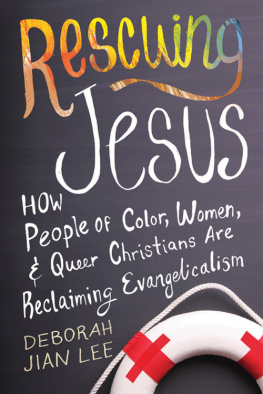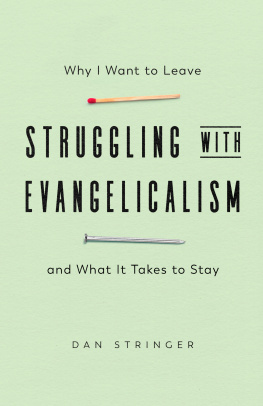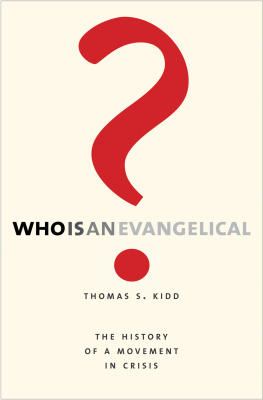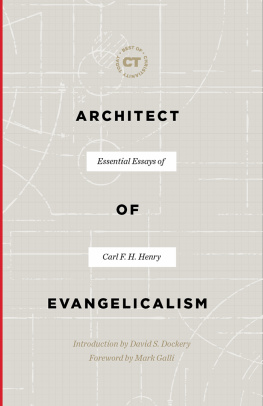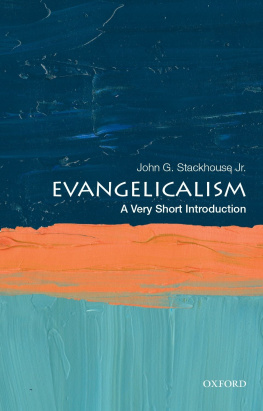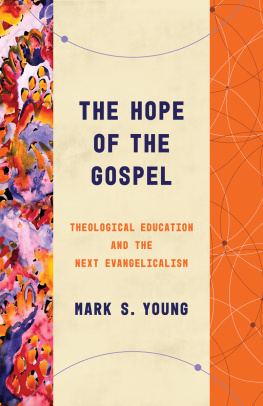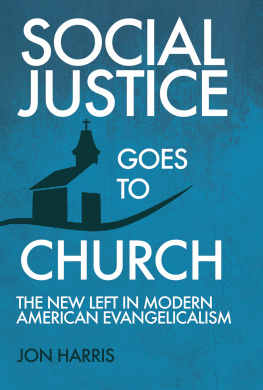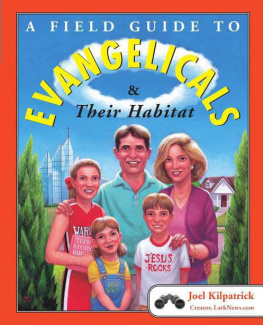
For Andrew
Introduction
THE FIRST BEGINNING
This book had many beginnings. Officially, it began in the run-up to the 2008 elections when I was reporting on the evangelical movement for journalism school and then for public radio. I traveled to suburban South Carolina, where conservative believers had emerged as champions for Barack Obama. I met people like Patricia Moseley, a middle-aged woman with red hair and a silky Southern drawl who had previously campaigned for Strom Thurmond and both George Bushes. But her desire for better public-education policy and an end to the wars abroad brought her out of the Right and into the Obama camp. I followed Robin Lucas, a late-twenties evangelical mother, as she canvassed surrounding neighborhoods with Obama fliers. She regretted what she now saw as a misguided vote for George W. Bush, cast partly out of pressure from fellow Christians, and was trying to redeem herself. I found seminary professors offering guidance to Democratic advisors, busing evangelicals to swing states in order to drum up support for the Democratic candidate. In the postelection analysis, it became clear that these inroads had boosted Obama, who ended up with the same percentage of evangelical support that Bill Clinton had received in 1992.
Though my beat was politics, I could also see that some evangelicals were carving a new path for the movement, one focused not on political labels, but on social justice. As a former true believer, I was intriguedeven more so when they told me this is the true heart of the evangelical movement. I met Lisa Sharon Harper, who was launching a faith coalition to combat police brutality and mobilize evangelicals behind immigration reform. I met Southern Baptist-raised Jennifer Crumpton, who was pressing old-school leaders to back policies that advanced womens access to contraception. I also met a slew of young believers challenging the Rights unwavering opposition to LGBTQ equality.
The more people I spoke to, the more I realized that something big was happening. In interview after interview, devout evangelicals told me they were ditching the Religious Right and backing progressive causes. Some were angry at the loud, conservative, self-appointed gatekeepers of evangelicalism; others were hopeful that change was afoot. Even as conservatives were making gains of their ownlaunching the Tea Party, claiming seats in Congress, doubling down on blocking reproductive rightsthe growing progressive minority of evangelicals insisted that their movement, which encompassed priorities far beyond partisan politics and elections, was here to stay. They were declaring a new era, vowing to reclaim the disgraced moniker evangelical. By redefining their faith on their own terms, they began to brandish the label with pride. Some added minor variations, and one that has stuck is progressive evangelical.
This is their story.
THE SECOND BEGINNING
The other beginning, more personal and unofficial, dates back to an earlier election: 2000, Bush versus Gore. A college student, I had just awoken to a startling reality: I was living in the middle of the culture wars.
Growing up, the terms culture wars and evangelical meant nothing to me. I was raised in a loving nonreligious household. My parents, immigrants from Hong Kong via Taiwan, taught me the values of kindness, hard work, and accepting others. When I expressed spiritual curiosity, they didnt offer answers. Instead my mother repeated a mantra: Every religion has some good in it. Find it. Learn from it. So I did.
I prayed with my Hindu friend and her parents by their weeping willow. I asked questions about my grandmothers Buddhism. I read books. I attended church with my older brother, whose classmate was evangelizing to him.
In our mostly white Chicago suburb, just a handful of school friends were like me, children of immigrants. Their origins ranged from Puerto Rico and Korea to India, West Africa, and other far-flung regions. We kids were so focused on assimilating to white America that we rarely discussed our ethnic identities. But I did notice that everyone, both kids of immigrants and not, had some sort of faith identity. My friends were Hindu, Muslim, Jewish, Bahai, and nearly every kind of Christian. They had traditions and holidays and sacred texts that spoke meaning into their lives. I wanted that.
For much of my childhood I felt like an outsider, always toggling between Chinese and American culture. At home, the cultural gap between my parents and me grew year by year. I spoke English exclusively, having lost my native Cantonese. My bedroom walls became a shrine to white and black celebrities. My parents felt they were losing me to American culture, and the widening cultural distance between us made home life tense at times.
Even at school, that tension never left my body. I was the kid faking it to fit in. I rarely invited friends over, worried that theyd make hurtful observations about my weird Chinese home (they often did). I was picked on for being Chinese and sometimes for no reason at all. Most of it was run-of-the-mill kid stuff that I recovered frombullies with their taunts, mean girls playing outlandish mind gamesbut the habitual drive-by racial slurs (the kind of street harassment that has followed me into adulthood) and one particular assault haunt me to this day. These memories sting not because I value the opinions of those idiots any longer, but because I can remember how, at such an impressionable age, those people made me believe I was worthless.
Eventually, I joined the youth group at the immigrant Chinese church my older brother had attended. There, I felt I had found my people. My peers lived in similar split worlds. They embraced me. They told me about their God, about how he made me the way I am and accepted me unconditionally. As a teenager praying quietly in my bedroom alone, I often felt a deep rush of joy swell within, like a fire igniting. I just knew that I was loved.
At fifteen I asked to be baptized. Immersed in a warm tub on the sanctuary stage, I said a few words about how I couldnt imagine my life without Jesus, about the immensity of Gods love. I heard the splash as my body went down, then that calm, underwater muteness and the cheers from my new friends as I emerged, my white robe and long black hair drenched, my face smiling. I became a youth group leader and led Bible study sessions. I danced at concerts, planned sleepovers and volunteer events, and started an occasional gathering we called coffee house, which was a kind of talent-show-meets-night-of-snacking with other teens in a candle-lit gymnasium.
Culture war rhetoric barely touched our immigrant church. We were apolitical, and our elders were conservative in a turn-down-that-crazy-music kind of way, not a partisan politics way. I didnt identify as an evangelical, and nobody talked about elections or abortion.
Hoping for a similar sense of community, I joined a campus Christian club soon after I arrived at the University of Illinois, Urbana-Champaign. InterVarsity Christian Fellowship is one of the largest evangelical campus ministries in the country, and at my school they had big crimson-bannered booths during freshman orientation, a blowout welcome party, and packed weekly meetings with a lot of smiling faces. It seemed like the place to be.
The group was mostly white, with a strong Asian contingent and a sprinkling of black and Latino students. Part of me felt at home, with the shared faith language and new friends to bond with. But another part of me felt uneasy: something was off. An unspoken cultural undercurrent seemed to be sweeping us all along in the same direction. I couldnt place my finger on it until the 2000 presidential election.

